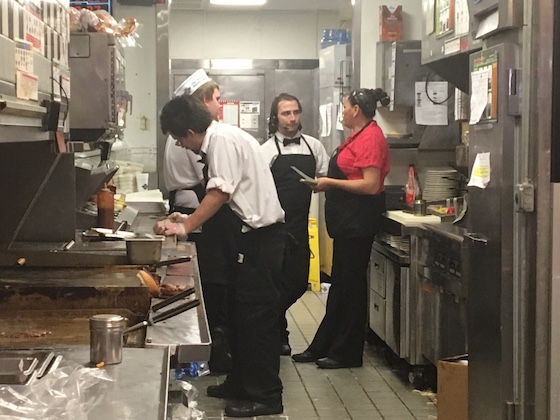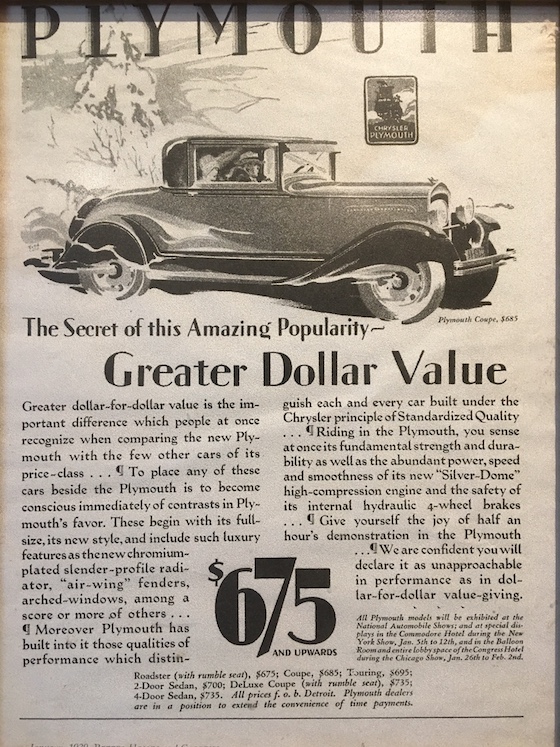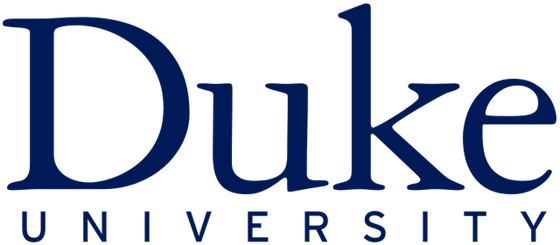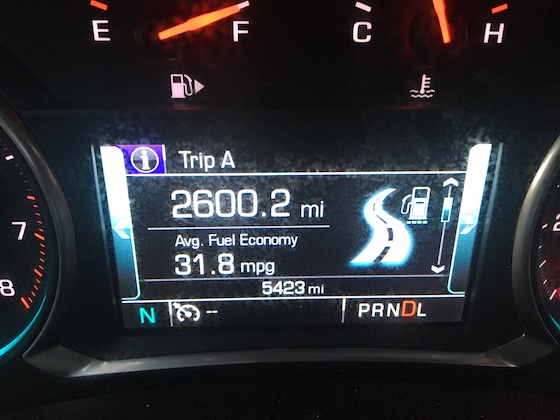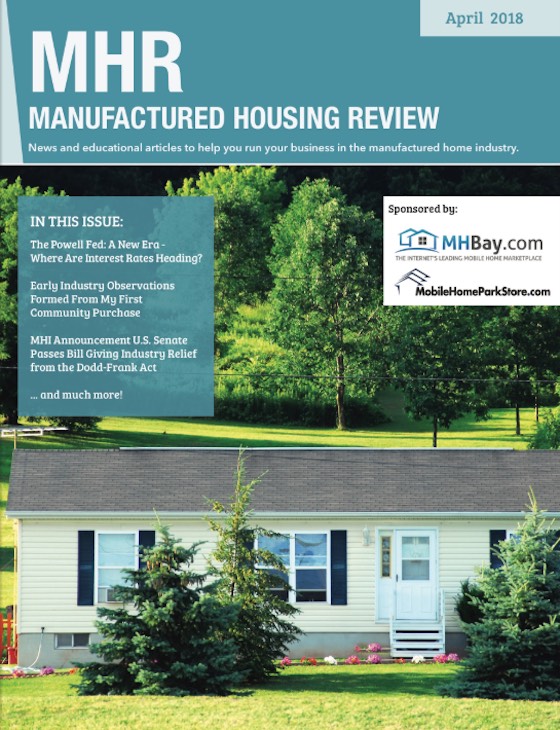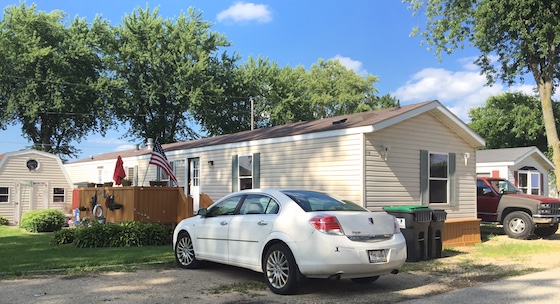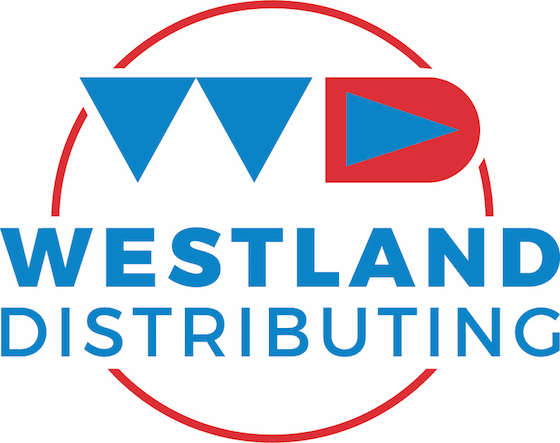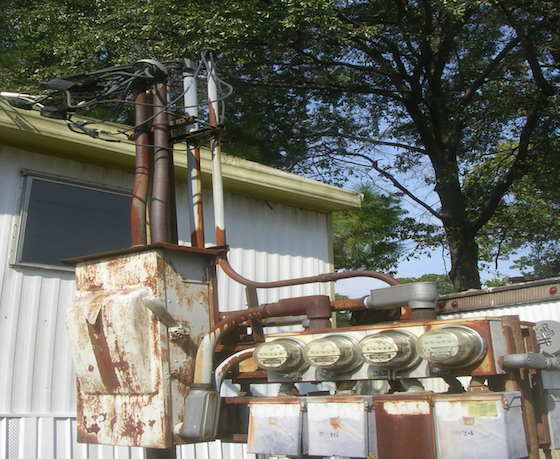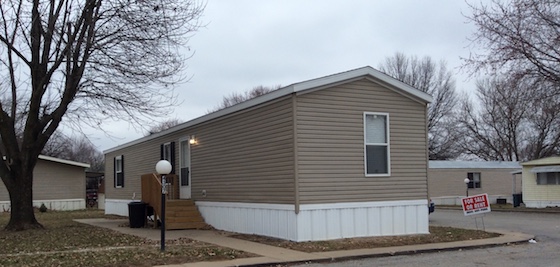A vacant lot is worthless. An occupied lot can be worth $10,000 to $100,000+. This basic principle is what motivates every park owner to try and find a way to fill every vacant spot. Here are ten different ways to fill a vacant lot, with some observations on the cost and difficulty association with each.
RV
This is one of the simplest way to fill a lot, as RVs are not very demanding as far as power requirements or lot finish-out. You can simply put out the word that you take RVs and start filling lots almost immediately if the demand is there. It costs the park owner zero out of pocket. However, there are basically two problems with filling lots with RVs. The first is that many cities don’t allow RVs to be placed within mobile home parks. The second is that RVs can pull out at any time, and this lack of financial barrier is a real turn-off for future buyers and lenders.
Organic
In this venue, you have an existing mobile home owner in somebody else’s mobile home park pull out and move over to yours. It costs you about $5,000 since you typically pay the full cost of the move. The great thing about these is that the customers is already a homeowner and you have extremely high retention. The downside is that if you do too much of this, other park owners may retaliate and steal your customers and you will have gained nothing.
Rent to the neighbor
OK, here’s a wild one. Rent the vacant lot to the next door neighbor. This gives that neighbor a double lot, and you get a little extra money (typically $25 to $50 per month) but more importantly don’t have to mow the lot anymore. It also creates a happier customer with higher retention. There’s no real downside except for the fact that you rented the lot for a fraction of what it’s worth.
Lonnie dealers
There are people who are acting on the business model of the late Lonnie Scruggs and his book “Deals on Wheels”. They basically buy, sell and rent mobile homes inside other people’s mobile home parks. Its not a business model that we care to speculate in, but it does fill vacant lots and that’s great. Find the Lonnie dealers in your market and see if they will start putting homes into your park. The only downside is that, if you let one person own too many homes in your park, they may start blackmailing you for lower rent or they’ll pull them out.
Dealers to move in old inventory and trade-ins
A mobile home in a dealer’s lot is not too compelling. But it’s a whole lot more saleable when you couple that home with a location and a turn-key offer to exchange keys for cash with an immediate move-in. We’ve done this successfully many times and it’s a total win/win. A simple model that requires little up-front cost and really has no downside.
CASH program
This program is offered by 21st Mortgage and it offers the park owner the ability to fill vacant lots with zero out of pocket, with 21st Mortgage offering the financing. It’s a great way to fill vacant lots, and there’s no real downside to it except for the fact that the park owner has to agree to cover the mortgage in-between residents and to clean and market the home if the customer defaults. The big observation here is that this program does not work in every market and park, as it requires potential residents with decent amounts of liquidity for down payments and decent (but not spectacular) credit.
Buy used homes
In this scenario, you buy a used mobile home, bring it in to your vacant lot, rehab it, and then sell or rent it. The downside is that there is significant capital needed for each step, and a whole lot of work, too. This is the classical way that park owners used to fill lots and it seemingly always works – but the other methods are a whole lot more fun and cheaper. An observation here is that you should try not to inject huge amounts of capital into old homes. When possible, buy newer ones that are more desirable and bluebook at higher amounts if you want to refinance them through 21st Mortgage or another lender.
Buy repo homes
The alternative to buying older homes is to buy newer “repo” homes from the mortgage companies. These homes are traditionally 1990s and newer, and feature updated designs both on the inside and outside. Customers love them and they require much less work and risk. You can find lists of repo homes on such websites as MHBay.com.
Home Wholesalers
These are people who buy used and repo homes on the cheap, do a little patching on them, and then sell them to park owners. The nice thing about these is that you know the home can be transported and they typically have the title in hand. The downside is that there’s a mark-up and you could have bought the home cheaper yourself. That being said, there’s no question that this is a valuable source of homes in every market.
Retention
No discussion of filling lots should come without a lecture on the importance of retaining the customers you have. It’s far easier to keep a customer in their home and lot than have to do any of the above-discussed options to fill a vacant lot. Treat people fairly and offer a great value and they will ever leave. Don’t forget that.
Conclusion
To maximize the value of most mobile home parks, you have to fill vacant lots. As you can see, there’s a variety of ways to do it, each with its own strategy and issues. Select the ones that are right for your community.


